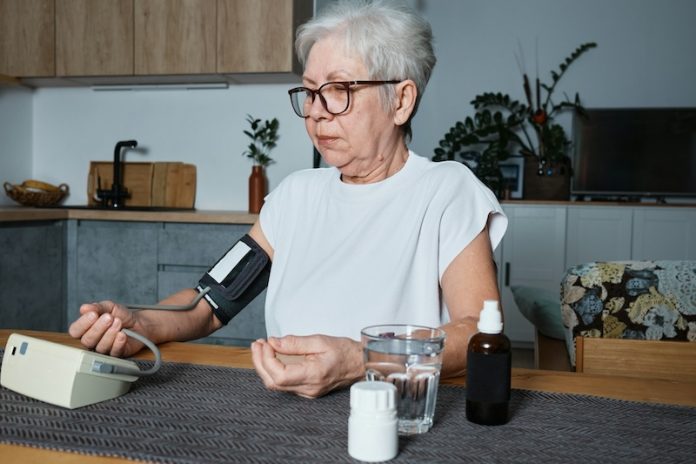
A recent study published in JAMA Network Open has found that stopping antihypertensive medications in long-term care residents does not appear to increase their risk of hospitalization for heart attacks or strokes.
The study offers valuable insights into the safety of deprescribing—reducing or stopping medications—among older adults in these settings.
The research, led by Dr. Michelle C. Odden from Stanford University, analyzed data from 13,096 U.S. veterans living in long-term care facilities between 2006 and 2019. All participants were taking at least one medication to control high blood pressure.
The researchers compared the health outcomes of those who continued their medication with those whose antihypertensives were deprescribed over a 12-week period.
During the study, 17.8 percent of the veterans had their blood pressure medications deprescribed. Over the following two years, researchers tracked hospitalizations for heart attacks and strokes. The results showed little difference between the two groups.
The unadjusted cumulative incidence of hospitalization for these conditions was 11.2 percent for those who stopped the medications and 8.8 percent for those who continued.
After adjusting for various factors, the analysis found no significant link between deprescribing antihypertensive drugs and an increased risk of hospitalization for heart attacks or strokes.
The findings suggest that, for certain long-term care residents, deprescribing blood pressure medications may not necessarily lead to worse cardiovascular outcomes. However, the authors note that these results should be interpreted cautiously.
They emphasize the need for more research to fully understand the risks and benefits of deprescribing, particularly in older adults with complex medical needs.
One limitation of the study is that it was observational, meaning it could not establish cause and effect. While the researchers adjusted for many factors, unmeasured confounding variables could still influence the results.
To address these concerns, the authors recommend conducting randomized clinical trials to provide more definitive evidence. However, they acknowledge the challenges of implementing such trials in this population, given the complexity of their health conditions.
The study underscores the importance of shared decision-making between patients, families, and clinicians when considering deprescribing.
With the growing interest in reducing medication burdens for older adults, this research contributes valuable knowledge to guide thoughtful and individualized care decisions.
If you care about high blood pressure, please read studies that early time-restricted eating could help improve blood pressure, and natural coconut sugar could help reduce blood pressure and artery stiffness.
For more information about blood pressure, please see recent studies about How to eat your way to healthy blood pressure and results showing that Modified traditional Chinese cuisine can lower blood pressure.
The research findings can be found in JAMA Network Open.
Copyright © 2025 Knowridge Science Report. All rights reserved.









Leave a Comment